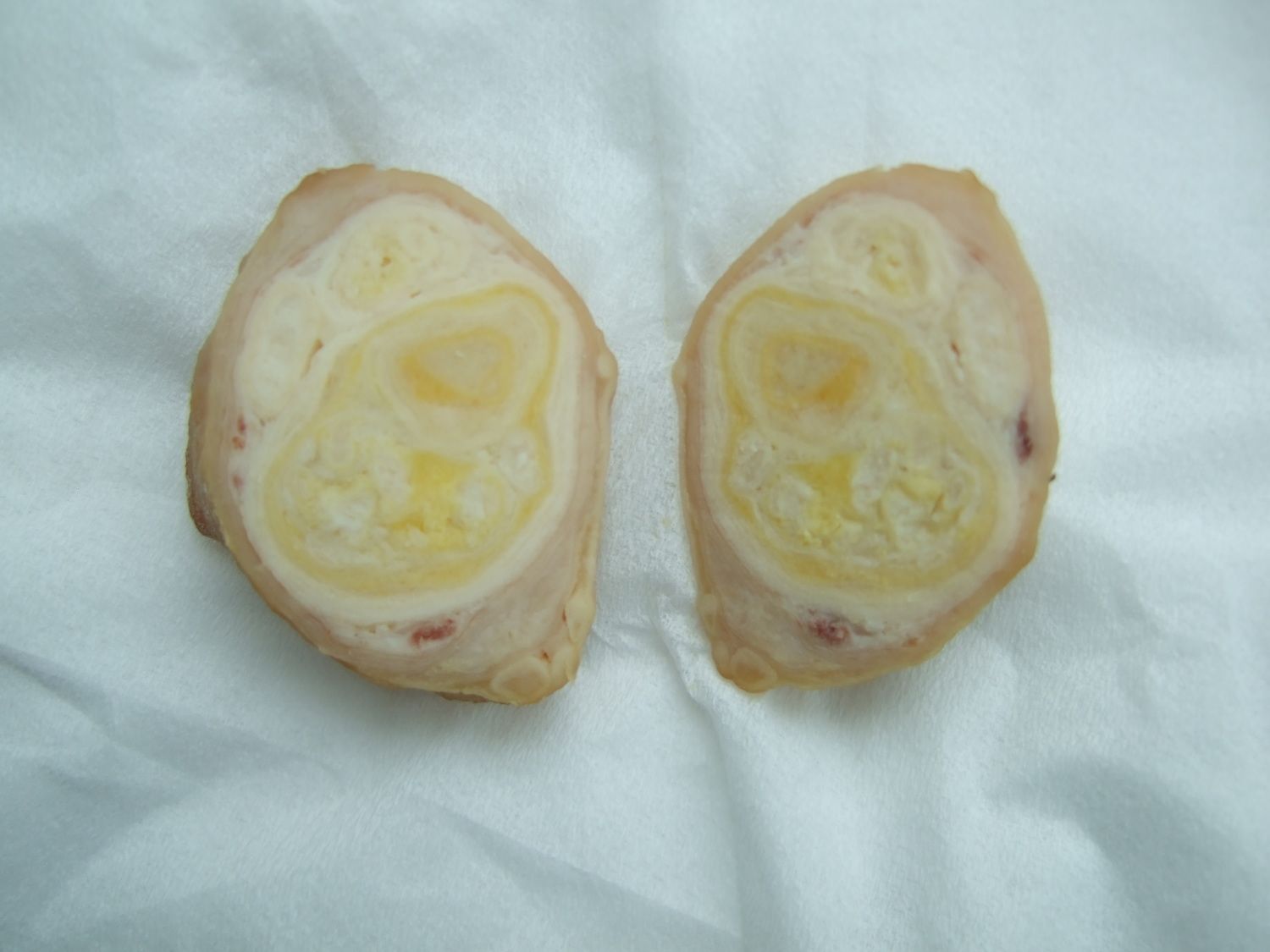I have a very sick 3 year old barnyard mix. Swollen belly, thin. I brought her in 6 days ago and have been getting some food down her. Her vent was nasty and a very smelly yellow goo has been coming out of her along with clean and green/dark stuff. I wondered if she was egg bound and put on a glove and put my finger in her vent. I could feel course material, thought it was maybe broken egg shell, managed to get some of it out of her. It was yellow- looked like cooked egg yolk. It was uncomfortable to her, so I just left her be. Over last few days I have continued to give her Tylan 50 each day and got a few bites of food down her.
She seemed a bit more perkier to day so I put the gloves on and tried again. this is what I dug out. I could tell there is more in there, but stopped because it seemed to hurt her.
It is hard and almost like sand, but is in clumps until pushed then it will break apart. As you can see, I got quite a bit out. Is it a lash egg???



She seemed a bit more perkier to day so I put the gloves on and tried again. this is what I dug out. I could tell there is more in there, but stopped because it seemed to hurt her.
It is hard and almost like sand, but is in clumps until pushed then it will break apart. As you can see, I got quite a bit out. Is it a lash egg???
Last edited:




